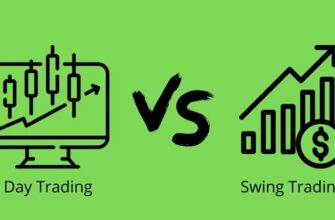Introduction to Trading: A Beginner’s Guide to Getting Started
Trading in financial markets can be an exciting and potentially lucrative venture. Whether you’re interested in stocks, commodities, currencies, or cryptocurrencies, understanding the basics of trading is essential before diving into the world of finance. This beginner’s guide aims to provide you with an introduction to trading, equipping you with fundamental knowledge and key concepts to get started.
What is Trading?
Trading refers to the buying and selling of financial instruments, such as stocks, bonds, commodities, or currencies, with the goal of making a profit. Traders aim to capitalize on price fluctuations in these assets by entering and exiting positions strategically.
Types of Trading
There are various types of trading, including:
- Stock Trading: Buying and selling shares of publicly listed companies.
- Forex Trading: Trading currencies in the foreign exchange market.
- Commodities Trading: Buying and selling physical goods like gold, oil, or agricultural products.
- Options Trading: Trading contracts that give the right to buy or sell assets at a predetermined price.
- Cryptocurrency Trading: Buying and selling digital currencies like Bitcoin or Ethereum.
Key Participants
In trading, you’ll encounter different participants that influence the market:
- Traders: Individuals who actively buy and sell assets in pursuit of profit.
- Brokers: Financial intermediaries who execute trades on behalf of traders.
- Market Makers: Institutions or individuals that provide liquidity by offering to buy or sell assets.
- Exchanges: Platforms where trading occurs, facilitating the matching of buyers and sellers.
Essential Concepts
To navigate the trading landscape, familiarize yourself with these key concepts:
- Fundamental Analysis: Assessing the intrinsic value of an asset by examining economic factors, financial statements, and industry trends.
- Technical Analysis: Analyzing historical price and volume data to identify patterns and make predictions.
- Risk Management: Implementing strategies to protect capital and minimize potential losses.
- Trading Strategies: Approaches that guide decision-making, such as trend following, breakout trading, or value investing.
- Market Order: An order to buy or sell an asset at the prevailing market price.
- Limit Order: An order to buy or sell an asset at a specified price or better.
- Stop Loss Order: An order to automatically sell an asset if its price reaches a predetermined level, limiting potential losses.
Getting Started
To start trading, follow these general steps:
- Educate Yourself: Read books, attend webinars, and explore online resources to understand trading principles and strategies.
- Set Financial Goals: Determine your objectives and the amount of capital you’re willing to invest.
- Choose a Trading Platform: Select a reputable online brokerage platform that offers the markets and tools you need.
- Practice with a Demo Account: Many platforms provide virtual trading accounts to practice without risking real money.
- Develop a Trading Plan: Define your trading approach, risk tolerance, and entry/exit strategies.
- Start Small: Begin with a modest investment and gradually increase your position size as you gain experience.
- Monitor and Learn: Continuously track your trades, analyze performance, and refine your strategies.
Remember, trading involves risks, and success requires time, effort, and continuous learning. It’s crucial to manage your expectations and avoid impulsive decisions driven by emotions.
In conclusion, this beginner’s guide has provided you with an overview of trading, including its definition, types, key participants, essential concepts, and steps to get started. By building a solid foundation of knowledge and practicing discipline, you can embark on your trading journey with confidence.










